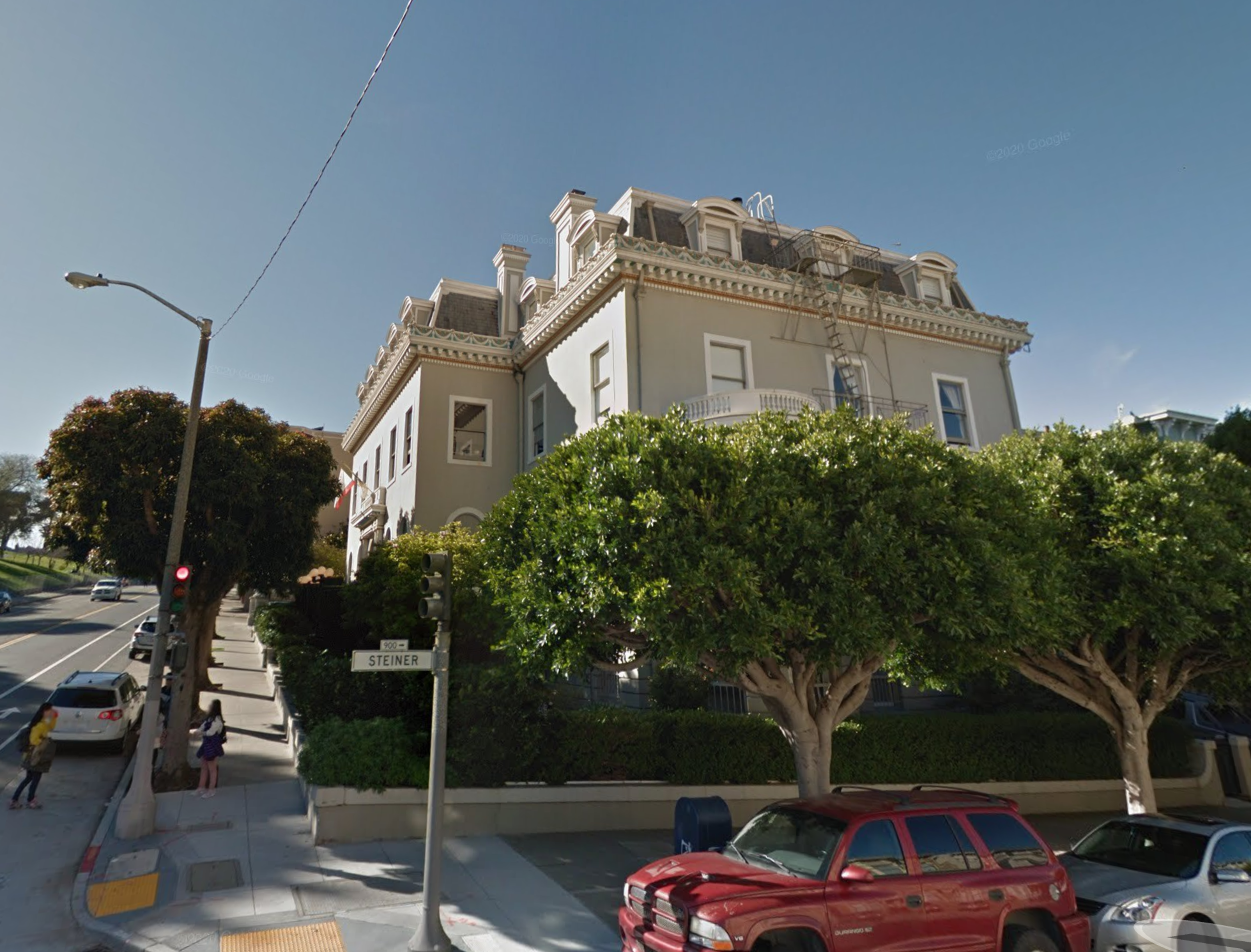Hacker houses are taking over pockets of San Francisco, offering co-living and co-working spaces for energetic founders and techies seeking to scoop the next big tech product.
Though some of these spaces are little more than communal living opportunities (opens in new tab) for tech-interested folks, some hacker houses in the city are wildly effective incubators and accelerators, helping founders raise millions in investor dollars in the process.
One particularly powerful incubator is HF0 (opens in new tab)—Hacker Fellowship Zero—a 12-week live-in residency for just 10 of the “world’s top technical founders.” The residency program, run by founder and Forbes’ 30 Under 30 recipient (opens in new tab) Dave Fontenot, has been offered in Miami in the past, and its upcoming batch will be hosted out of a massive Hayes Valley hotel (opens in new tab) that more closely resembles a diplomat’s estate than a hacker’s cave.
HF0’s mission is simple: It plans to cover all the tough parts about living in a city, working a job or dealing with life outside of work, so founders can solely focus on starting a company. The residency promises to provide funding, housing, food and laundry—as well as $250,000 in “uncapped” funding in exchange for a 2.5% fee.
“Imagine if you could just build shit and not worry about anything else,” wrote Fontenot in a Facebook post last year (opens in new tab). “That’s what HF0 is. The perfect space to build your next startup.”
It helps that the incubator is based out of a 22,000-square-foot space in the heart of “Cerebral Valley,” built over 100 years ago and located right across the street from Alamo Square Park. Popularly known as the Archbishop’s Mansion, the property once sold for over $12.7 million (opens in new tab) and features a massive mahogany staircase, fine-detailed fireplaces and a stained-glass dome. It now operates as the 1000 Fulton Hotel.
HF0 sounds cushy, and a bit like a cult—and maybe it is. Alongside spawning AI ventures like Crossmint or Pave, a curious new tech denomination, the “Church of GPT (opens in new tab),” claims to have found its footing at an HF0 event in 2022.
‘The Most Inspiring Environment‘
Quirky and tech-cultish as HF0 may be, its results speak for themselves.
“It was the most inspiring environment that I’ve lived in, in my entire life,” said Rodri Fernández Touza, co-founder of C (opens in new tab)ross (opens in new tab)mint (opens in new tab), a tool used by NFT creators to accept credit card payments.
This is high praise coming from Fernández Touza, an engineer who worked at consulting giant McKinsey and once attended Stanford Business School before dropping out to become a monk—a practice he eventually also dipped from, once he heard of HF0.
Moving from one spiritual pursuit to another, Fernández Touza arrived at HF0’s Miami cohort in 2021—still decked out in his monastery’s robes—but was humbled to find a community of technical founders and inspired minds around him.
“It’s 15 or so people living in the same house, each working on their own product and each having done incredible things before,” said Fernández Touza. “You could just feel it in the environment. You could go downstairs at like 3 a.m., and there would be some people learning how to play the piano, others playing chess and others doing pretty cool hardware stuff.”

For someone who prioritized zen meditation and explores the meaning of silence (opens in new tab) in his free time, it might come as a surprise that a founder like Fernández Touza would find comfort in a co-living space like HF0. But it’s the intense work-and-community environment that Fernández Touza says makes HF0 a special experience, and also a wildly successful one.
“It completely changed my life for the better,” Fernández Touza said. “I felt like a bit of an outsider in my life, everywhere that I go. I have very weird tastes in things, but I felt like HF0 was the first place that felt like home.”
Fontenot asserts that top teams (opens in new tab) in previous residency batches have raised at $60 million dollars and helped founders from underrepresented backgrounds raise millions on Web3 applications.
The residency’s founder isn’t unfamiliar with hacker communities and programs like HF0, either. Fontenot garnered recognition within the AI and venture capital world for his time running—in his words—the “largest hackathon in the world (opens in new tab),” and he writes on his LinkedIn (opens in new tab) that he aims to “accelerate the coming of the next Renaissance,” perhaps through his latest hacker home ventures.
A New Wave of Hacker Communities

HF0 is not the first accelerator out there, nor is it the first to introduce a hybrid work-and-living model.
Nonetheless, HF0 is frequently listed as a top hacker/entrepreneurship community (opens in new tab) by insiders in the business, largely because its all-inclusive lifestyle takes away the distractions from founding a new company—fast.
These hacker homes are, in some ways, a nostalgic return to the tech world’s roots, reminding us of the Palo Alto startup homes that once spawned tech giants like Facebook (opens in new tab). But Fernández Touza and others say that these homes may not have the fratty mentality or lifestyle of hacker spaces of years past.
But as the generative technology industry (opens in new tab) becomes an increasingly popular and lucrative industry in the Bay Area, these communities and residency programs may be more than just another iteration of tech’s cushy lifestyle—they’re seen as the hubs of AI’s future.
The next HF0 cohort will be hosted in San Francisco in February 2023. Dave Fontenot did not respond to The Standard’s requests for comment.
